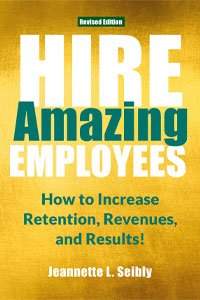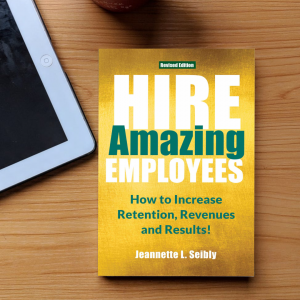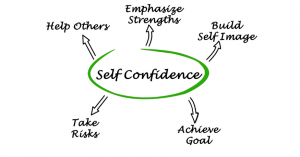
While the answer is “yes,” too many bosses and leaders derail their careers when they make mistakes, experience failure, or find themselves in conflict. Then, to make matters worse, they attempt to rectify it too quickly, lie about it, or fail to take responsibility by blaming others or the situation.
Remember, the same mindset that created the problem should not be used to solve it—it will only make it worse.
Have you:
- Used a disrespectful tone of voice or become upset with your boss when s/he is critical of your work? Or the work of your team?
- Lost your patience with a customer or team member? As a result, do they now refuse to work with you?
- Offered inappropriate or incorrect solutions and then denied doing so? As a result, your co-workers are upset and want you fired.
- Used microaggressions (e.g., men are more intelligent than women) when talking with your team. Result? They are offended.
- Been given feedback by your boss or team, and you were defensive and rude?
While these may sound extreme, too often, you have done a version of them. (We all have.) When these issues occur, you can derail your career or job promotion opportunities without knowing it!
How to Resolve Avoidable Mistakes
Pause and Breathe. Mindfulness is important. Say to yourself, “I will work through this and get the help I need to improve.” Now, take action to resolve your mistake, failure, or conflict.
Contact Your Executive Coach as soon as possible before you make the mistake, failure, or conflict worse. Complete the “What Worked? / What Didn’t Work?” exercise to provide objective insights.
Take Responsibility. After devising a plan with your coach, talk with your boss. Map out who, what, when, where, and why it needs to be done. Remember, “hoping the issue will go away” is a strategy for failure! This is a golden opportunity for you to be the boss and leader who can make a positive difference – failure to do so will result in irrevocable loss of trust.
Apologize. Offering apologies will be the next thing to do. Saying, “I apologize” is easy. But your apology must be genuine so your boss, co-workers, team members, and customers can hear you! While these two words seem simple, you may resist saying them! Remember, pay now by taking responsibility or later when you’ve been fired.
Do It! Enough talking about it. Get into action. Be willing to dance (be flexible) in the conversation—remember, the actual discussion will be different than the conversation you mapped out in your head. Listening to their concerns can turn around their negative feelings towards you and get you on the right track. Yes, you must take the time and offer the patience to solve the mistake, failure, or conflict. Remember, keep talking to your executive coach throughout the process.
©Jeannette Seibly 2024 All Rights Reserved
 Jeannette Seibly is a Talent Advisor/Leadership Results Coach with over 31 years of practical experience guiding leaders and bosses to improve their hiring, coaching, and managing practices and produce amazing results! And yes, achieving business success always starts with having the right people in the right jobs! She has been an Authorized PXT Select® Partner for over 32 years. Contact Jeannette to learn more about these state-of-the-art job-fit assessment tools or how to coach and manage your people to achieve incredible results.
Jeannette Seibly is a Talent Advisor/Leadership Results Coach with over 31 years of practical experience guiding leaders and bosses to improve their hiring, coaching, and managing practices and produce amazing results! And yes, achieving business success always starts with having the right people in the right jobs! She has been an Authorized PXT Select® Partner for over 32 years. Contact Jeannette to learn more about these state-of-the-art job-fit assessment tools or how to coach and manage your people to achieve incredible results.
A note from Jeannette: Mistakes, failures, and conflicts can be resolved if you’re willing to do the work and get into action. But if you act too quickly, depending on the problem, it will only make it worse. If this has happened to you recently, now is the time to talk it out using my 31+ years of leadership and management issues to resolve it — before it’s too late. Contact me now!
 Now is the time to get into focused action! Are there days you dread doing what is needed to manage your people, projects, and team’s financial performance? You’re not alone! Everyone has those days! But continuing to hide behind excuses only hurts you and your future promotability. I have extensive experience and wisdom guiding bosses and leaders to hire, coach, and manage their teams successfully – this includes getting you out of the way and working with and through people effectively to achieve the results required. Contact me to learn more about my in-depth, one-on-one, customized coaching programs.
Now is the time to get into focused action! Are there days you dread doing what is needed to manage your people, projects, and team’s financial performance? You’re not alone! Everyone has those days! But continuing to hide behind excuses only hurts you and your future promotability. I have extensive experience and wisdom guiding bosses and leaders to hire, coach, and manage their teams successfully – this includes getting you out of the way and working with and through people effectively to achieve the results required. Contact me to learn more about my in-depth, one-on-one, customized coaching programs.
 This book (“Hire Amazing Employees“) by Nancy Schick, NY Employment Attorney and Mediator, can help you improve your hiring process. I met Jeannette Seibly a few months ago In this Together Round Table, where I also learned about her book, Hire Amazing Employees. Since my clients frequently struggle with this task, I bought myself a copy and gave several as gifts. The book contains many helpful tips for avoiding the impact of hiring errors. Read the full testimonial here.
This book (“Hire Amazing Employees“) by Nancy Schick, NY Employment Attorney and Mediator, can help you improve your hiring process. I met Jeannette Seibly a few months ago In this Together Round Table, where I also learned about her book, Hire Amazing Employees. Since my clients frequently struggle with this task, I bought myself a copy and gave several as gifts. The book contains many helpful tips for avoiding the impact of hiring errors. Read the full testimonial here.


 It’s time to talk it out! Are there days you dread managing people, projects, and your team’s financial performance? You’re not alone! Everyone has their blind spots! NOW is the time to get the guidance you need to make the right changes during 2024. I have extensive experience and wisdom guiding bosses and leaders to hire, coach, and manage their teams successfully. The bonus is that they achieve unprecedented results.
It’s time to talk it out! Are there days you dread managing people, projects, and your team’s financial performance? You’re not alone! Everyone has their blind spots! NOW is the time to get the guidance you need to make the right changes during 2024. I have extensive experience and wisdom guiding bosses and leaders to hire, coach, and manage their teams successfully. The bonus is that they achieve unprecedented results.  This Book (“Hire Amazing Employees”) Can Help You Improve Your Hiring Process, by
This Book (“Hire Amazing Employees”) Can Help You Improve Your Hiring Process, by 
 Jeannette Seibly is The Leadership Results Coach. She has guided the creation of three millionaires and countless 6-figure income professionals. As an award-winning international executive and family business management consultant, keynote speaker, and author for over 30 years, she guides others to make a positive difference. Feel stuck in a political work situation? Want clear advice on how to get out of it?
Jeannette Seibly is The Leadership Results Coach. She has guided the creation of three millionaires and countless 6-figure income professionals. As an award-winning international executive and family business management consultant, keynote speaker, and author for over 30 years, she guides others to make a positive difference. Feel stuck in a political work situation? Want clear advice on how to get out of it?  Are you frustrated because you are a results producer and now not producing the intended results? It’s time to find out “why” and get back into the game. It requires seeing your blind spots and hiring a coach! I have extensive experience guiding bosses and leaders to work with and through their teams to achieve unprecedented results.
Are you frustrated because you are a results producer and now not producing the intended results? It’s time to find out “why” and get back into the game. It requires seeing your blind spots and hiring a coach! I have extensive experience guiding bosses and leaders to work with and through their teams to achieve unprecedented results. 
 Jeannette Seibly is The Leadership Results Coach. With over 30 years as an award-winning international executive coach, speaker, and business author, Jeannette’s clients effectively work through sticky situations and challenging relationships to become positive influencers. Contact Jeannette for a confidential discussion. PS: She’s also a three-time Amazon Best-Selling Author!
Jeannette Seibly is The Leadership Results Coach. With over 30 years as an award-winning international executive coach, speaker, and business author, Jeannette’s clients effectively work through sticky situations and challenging relationships to become positive influencers. Contact Jeannette for a confidential discussion. PS: She’s also a three-time Amazon Best-Selling Author! How’s your leadership development progressing? Are you moving forward … or a tad stuck? Do you need a “nudge” and “clarification?” Want to accelerate and soar your results?
How’s your leadership development progressing? Are you moving forward … or a tad stuck? Do you need a “nudge” and “clarification?” Want to accelerate and soar your results? 




